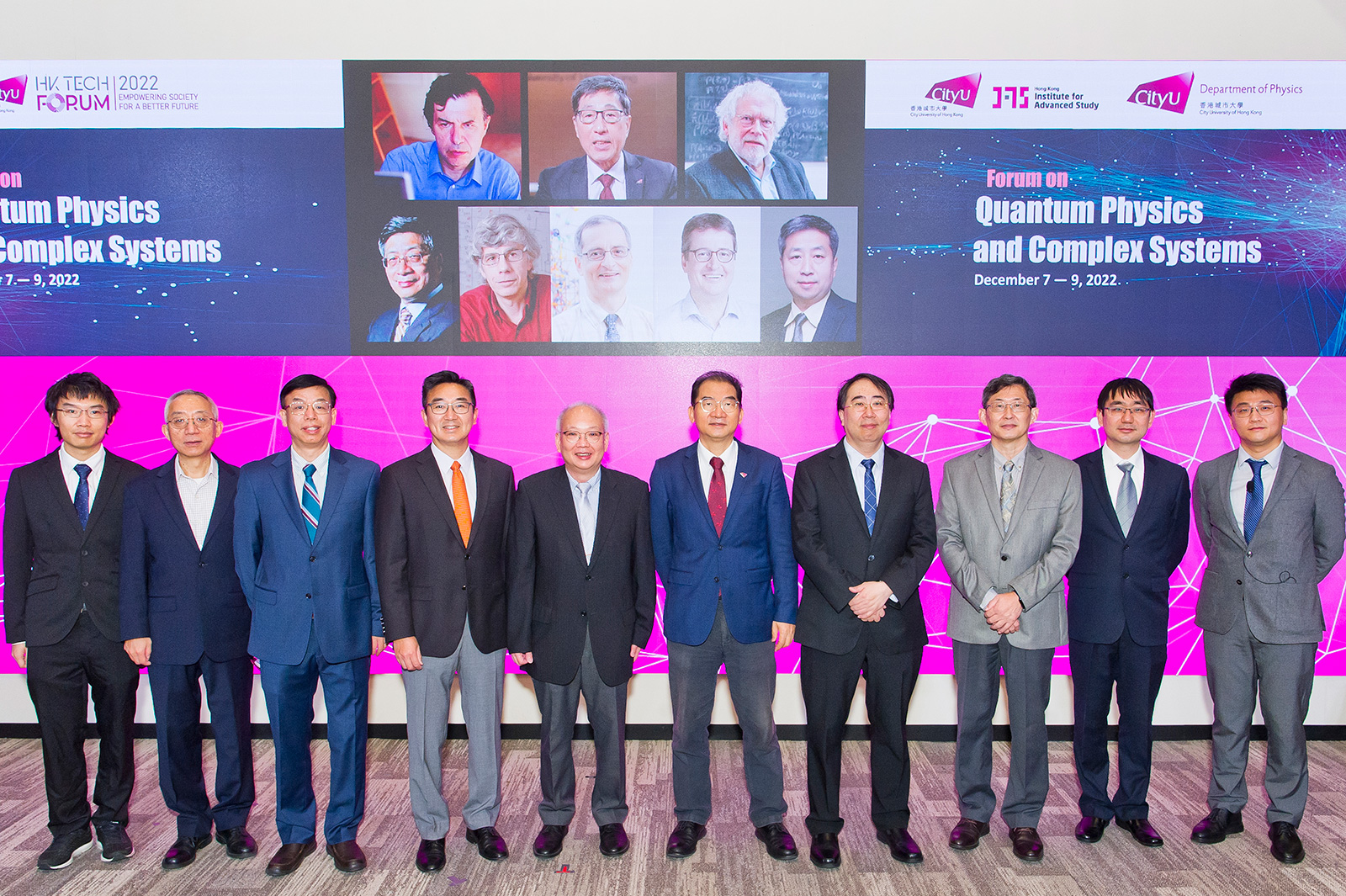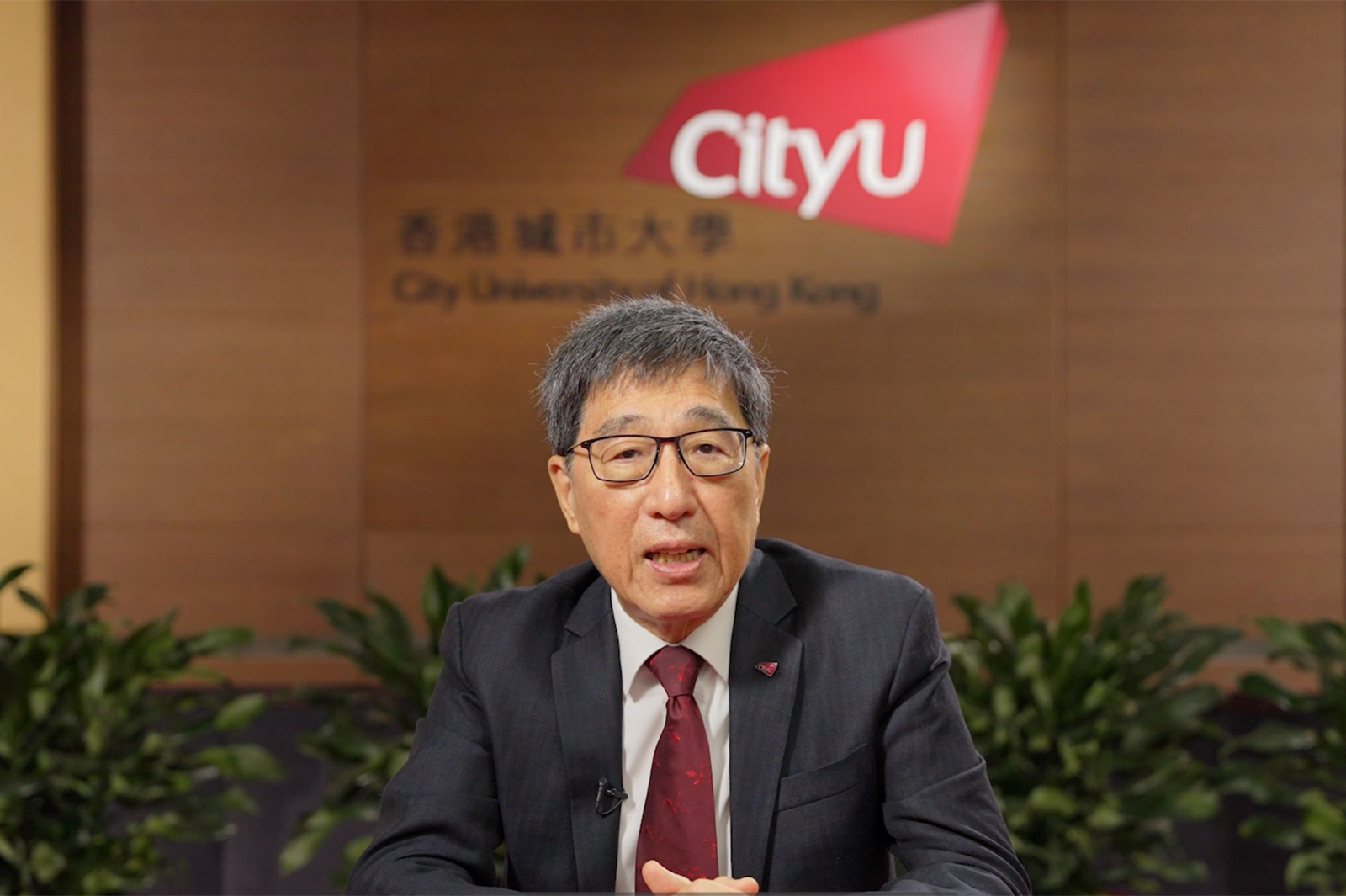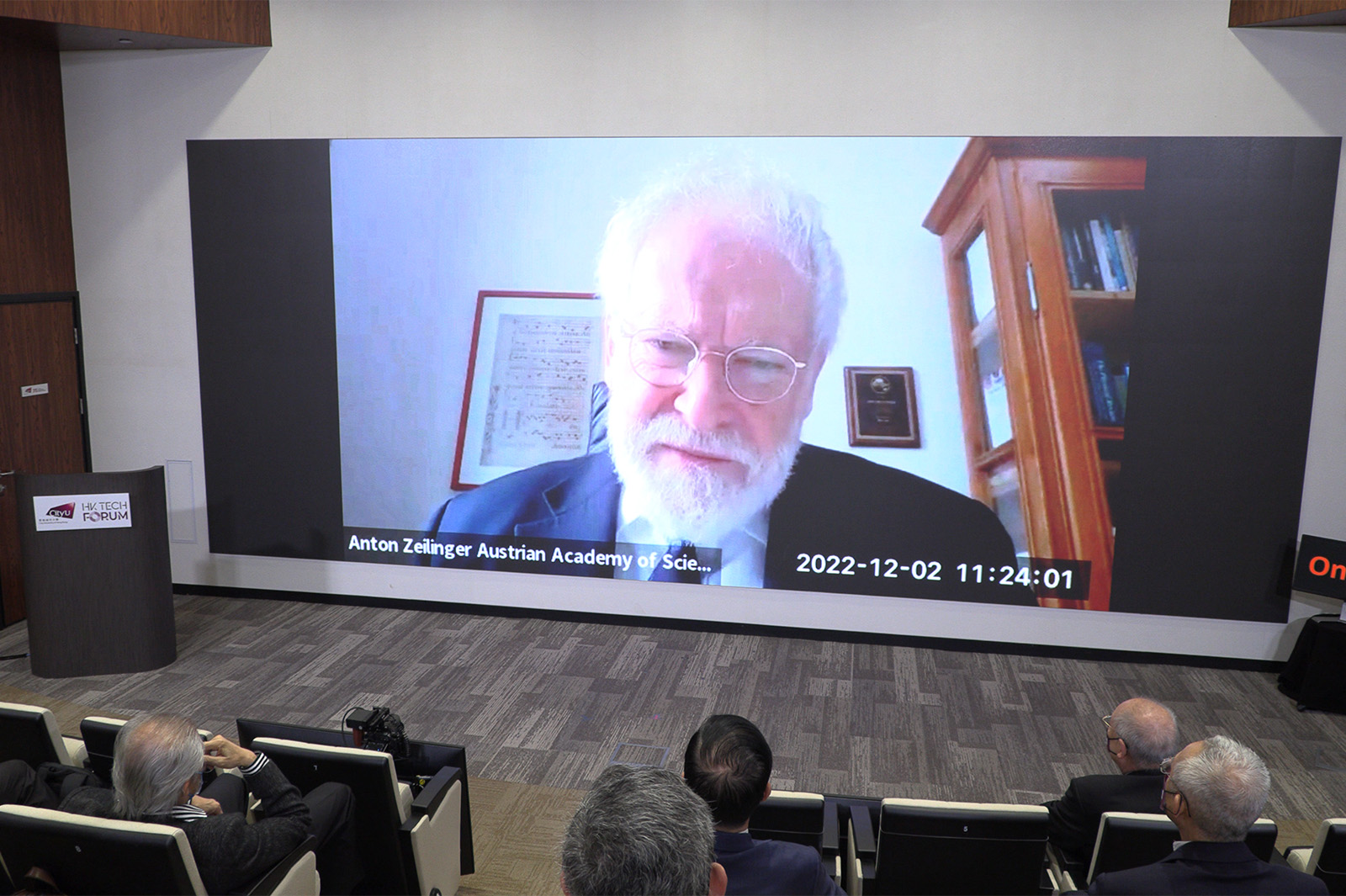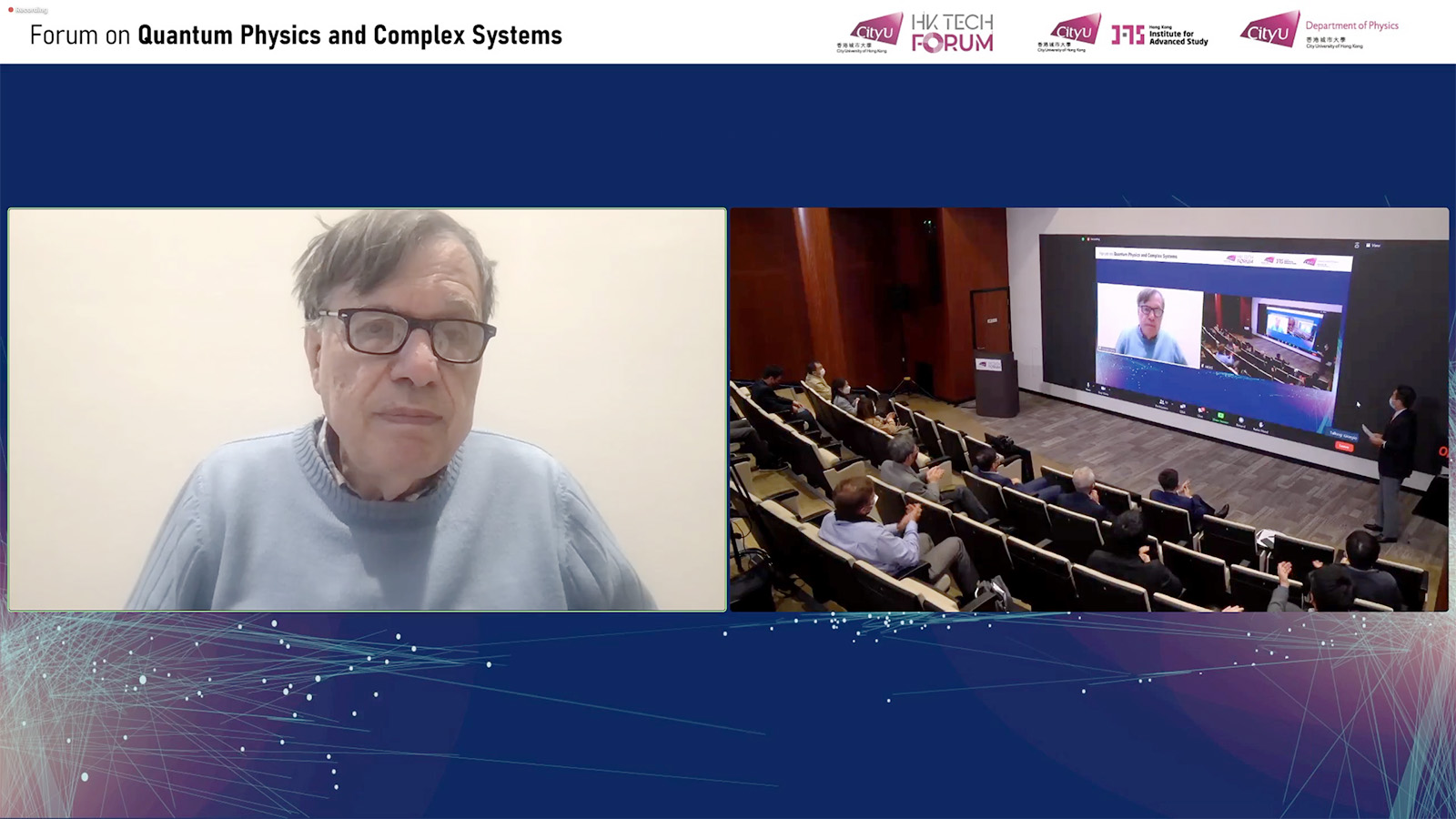5th HK Tech Forum investigates quantum physics and complex systems

Leading academic and industry researchers in the rapidly developing fields of quantum computation, quantum physics, and related areas gathered at the HK Tech Forum on Quantum Physics and Complex Systems hosted by the Hong Kong Institute for Advanced Study at City University of Hong Kong (CityU) from 7 to 9 December.
This fifth forum in the HK Tech Forum series provides an exceptional multi-disciplinary, cross-pollination arena for world-leading scientists to discuss complex systems, including spin glasses, neural networks, proteins, and related problems.

President Way Kuo of CityU, who initiated the HK Tech Forum, extended a warm welcome at the opening ceremony on 7 December, noting that some of the brightest researchers and most eminent scholars from academia to industry would have the opportunity at this event to discuss their investigations of the properties and uses of quantum interactions and share their critical views on aspects of quantum physics and complex systems.
Professor Bao Wei, Chair Professor of Physics at CityU, Professor Jeff Ou Zheyu, Chair Professor of Physics at CityU, Professor Ren Yang, Chair Professor of Physics at CityU, and Professor Wang Xunli, Head of Department and Chair Professor of Physics at CityU, were the Co-Chairs.
Professor Wang delivered the opening remarks on behalf of the Organising Committee, saying the forum served to mark the 5th anniversary of the Department of Physics and that it was a privilege to host the Forum, an event that aligned with the strategic directions of the department.

In his greeting message, Professor Anton Zeilinger, Austrian Academy of Sciences, Austria, and the Nobel Prize laureate in Physics 2022, said he was glad that this kind of conference had been organised, particularly now that Hong Kong was accelerating research on quantum physics and complex systems.
Professor Giorgio Parisi, Sapienza University of Rome, Italy, and the Nobel Prize laureate in Physics 2021, gave a featured talk, “Replica Symmetry Breaking and Applications”.

Other eminent scholars were invited to give keynote talks during the three-day forum. Professor Chen Hesheng, an Academician at the Chinese Academy of Sciences (CAS) and the Institute of High Energy Physics, CAS, China, introduced the China Spallation Neutron Source, a multidisciplinary platform for neutron scattering research which is located in Dongguan, close to Hong Kong.
Professor Jia Jinfeng of the Southern University of Science and Technology, China, discussed topological superconductors by proximity effects.
Professor Sidney R. Nagel of the University of Chicago, US, explored memory in a glassy landscape.
Professor Franco Nori of the Theoretical Quantum Physics Laboratory, Center for Quantum Computing, RIKEN, Japan and the University of Michigan, US, talked about “Quantum Optics with Giant Atoms: Decoherence-Free Interaction between Giant Atoms in Waveguide Quantum Electrodynamics”.
Professor Christian Schroer, a leading scientist at Deutsches Elektronen-Synchrotron, Germany, reported the advances in synchrotron X-ray scattering in a talk titled “Understanding Quantum Materials and Complex Systems Using Modern and Future Synchrotron Radiation Sources”.
Five forums for the HK Tech Forum series have been held in the second half of 2022, and there are plans to expand into 2023 and beyond. The next forum, which will be on metabolism in health and disease, will be held from 15 to 16 December.
HK Tech Forum series
https://www.cityu.edu.hk/hktechforum/
